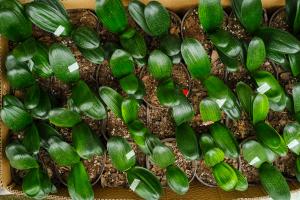Can I pH My Plant Water with Baking Soda?
If you are looking for ways to adjust the pH of your plant water and have come across baking soda as a possible solution, you may be wondering if it is safe and effective to use. Baking soda, also known as sodium bicarbonate, is a common household item that has many uses, including as a cleaning agent, baking ingredient, and even a natural remedy for certain health conditions. But when it comes to using it in your plant care routine, there are a few things to consider.
Understanding pH and Its Importance for Plants
Before we dive into whether or not you can pH your plant water with baking soda, let's first understand what pH is all about and why it matters for plants. pH is a measure of the acidity or alkalinity of a substance, ranging from 0-14, with 7 being neutral. Most plants prefer a slightly acidic to neutral environment, with a pH range of 6.0-7.0 being optimal for most plant species. When the pH is too high or too low, it can affect the plant's ability to absorb nutrients from the soil, leading to stunted growth, nutrient deficiencies, and other health problems.
The Pros and Cons of Using Baking Soda to pH Plant Water
Now, let's talk about the potential benefits and drawbacks of using baking soda as a pH adjuster for your plant water. On the plus side, baking soda is readily available, affordable, and easy to use. It can help to raise the pH of acidic water and make it more alkaline, which may be beneficial for plants that prefer a less acidic environment. However, using too much baking soda can quickly raise the pH too high, which can be damaging to plants and lead to nutrient lockout. Additionally, baking soda can affect the soil's pH, which can have long-term effects on plant health.
How to pH Your Plant Water with Baking Soda
If you have decided to pH your plant water with baking soda, it is important to do so cautiously and with the right measurements. Here's how:
Fill a container with the amount of water you need for your plants.
Add a small amount of baking soda, such as ? - ? teaspoon per gallon of water.
Mix well and test the pH of the water. Repeat until you reach the desired pH range.
Remember, the key to successfully using baking soda to pH your plant water is to start with small amounts and test frequently, adjusting as needed.
Alternatives to Baking Soda for pH Adjustments
If you are hesitant to use baking soda or are looking for alternative pH adjusters, there are several options to consider. Some popular choices include:
Vinegar
Lemon juice
Hydrated lime
Sulfur
Commercial pH adjusters
Each of these methods has its own pros and cons, so it's important to do your research and select the option that is best for your plants' needs and your personal preferences.
Final Thoughts
While using baking soda to pH your plant water may be a convenient option, it is important to weigh the potential risks and benefits before proceeding. Remember to always start with small amounts and test frequently to avoid damaging your plants or affecting the soil's pH. Alternatively, consider trying other pH adjusters that may be more effective or a better fit for your needs. By taking the time to properly adjust pH levels, you can help ensure that your plants are getting the nutrients they need to thrive.

 how many times do yo...
how many times do yo... how many planted tre...
how many planted tre... how many pine trees ...
how many pine trees ... how many pecan trees...
how many pecan trees... how many plants comp...
how many plants comp... how many plants can ...
how many plants can ... how many plants and ...
how many plants and ... how many pepper plan...
how many pepper plan...





























